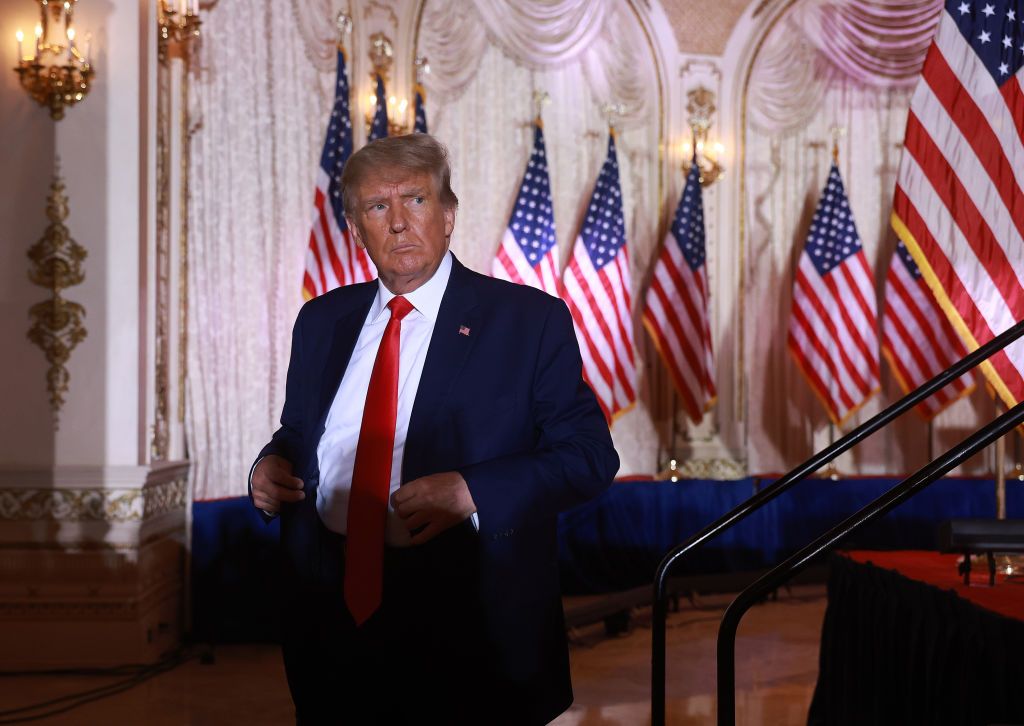Former U.S. President Donald Trump has reportedly said he could end Russia’s war by pressuring Ukraine to cede Crimea and Donbas to Moscow, claiming that both Moscow and Kyiv want a way out. However, Ukraine’s President Volodymyr Zelensky has repeatedly stated that Kyiv would not cede territories in exchange for peace. Zelensky introduced a 10-point peace plan at a G20 summit in November 2022, which includes the immediate withdrawal of Russian troops and the establishment of a tribunal for Russian war crimes. Despite Trump’s assertion that he could end the war within 24 hours if elected, Zelensky has emphasized that Ukraine will not compromise its territories.
Trump, who is set to become the Republican nominee in the U.S. presidential election, has also stated that he would not commit to providing Ukraine with defense assistance if he won the 2024 election. This comes as Kyiv faces critical ammunition shortages amid stalled military support from the U.S., a key military donor. Russian dictator Vladimir Putin dismissed the idea of negotiations with Ukraine due to dwindling ammunition stocks, indicating the ongoing challenges in reaching a resolution to the conflict. A document from unsuccessful peace talks in 2022 revealed Russian peace terms that include severe restrictions on Ukraine’s Armed Forces and a ban on joining military blocs like NATO, leaving the country vulnerable to Russian aggression.
Meanwhile, Ukrainians living under Russian occupation continue to face challenges and uncertainty. The names of individuals interviewed by the Kyiv Independent for a recent story were changed to protect their identity, as they shared sensitive information that could jeopardize their safety. The Russian occupation of Crimea and the Donbas in 2014, along with the 2022 occupation of parts of Kherson and Zaporizhzhia oblasts, has led to deportation and loss of property for residents in these regions. Despite the difficulties faced by those living under occupation, there remains a strong commitment to resist and maintain Ukrainian identity in the face of Russian aggression.
The situation in Ukraine remains complex, with ongoing tensions between Russia and Ukraine impacting the lives of civilians in the region. The emergence of Trump’s statements regarding a potential resolution to the conflict through territorial concessions raises concerns about the future of Ukraine’s sovereignty and territorial integrity. Zelensky’s refusal to cede territories in exchange for peace underscores the importance of upholding Ukraine’s sovereignty and resisting external pressure to compromise on its territorial integrity. As the conflict continues to unfold, the need for international support for Ukraine’s independence and the protection of its citizens becomes increasingly critical.
The challenges faced by Ukrainians living under Russian occupation highlight the urgent need for advocacy and support for those affected by the conflict. The resilience and determination of individuals living in these territories reflect a strong commitment to preserving Ukrainian identity and resisting external forces seeking to undermine the country’s sovereignty. The ongoing efforts of journalists like Alexander Khrebet to shed light on the experiences of those living under occupation play a crucial role in raising awareness and mobilizing support for Ukraine’s independence. As the international community grapples with the complexities of the conflict, standing in solidarity with Ukraine and supporting independent journalism are essential steps in advocating for a peaceful resolution and upholding the rights of those impacted by the ongoing hostilities.


